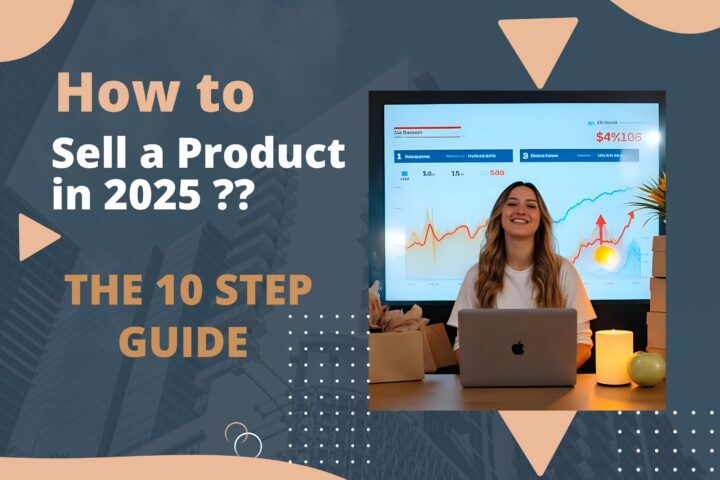It is estimated that around 300 million startups are created each year. But how many of them actively seek to create opportunities for job seekers? For entrepreneur, Gergo Vari, combining his passion for startups with his concern for the broken recruiting process has led to just such a creation.

This is the story of Lensa, a successful startup that believes technology can be used to facilitate positive human interactions, notably that of employer-employee relations.
We Begin at the Beginning
When you think of entrepreneurship, you aren’t likely to immediately think of Soviet satellite states. But that is precisely where our story begins. In the ex-Soviet satellite of Hungary, young Gergo Vari got his first taste of entrepreneurship when he began selling fruit from his grandfather’s orchard. He would attend school in New York and in Hungary and would later study business at McGill University in Montreal, Canada, and also in Koblenz, Germany. It’s no wonder his business ventures would take on an international appeal.
Initial Success
Identify a problem, create a solution, and get the word out. It’s a simple formula for success.
The problem Gergo Vari would encounter upon graduating from university and setting out to find a job was that in Hungary, at the time, there weren’t any established platforms for posting jobs and helping out for recent graduates on their career journey. The frustrations of a recent finance graduate trying to find a job prompted Gergo to develop a platform to help people in a similar situation as he found himself in. So, he founded and launched Profession.hu – doing much of the coding himself – which quickly became the go-to recruitment platform in all of Hungary.
Four years later – after Profession.hu had earned a 75% market share in the country – Sanomoa Media (later purchased by Central Médiacsoport Zrt – would purchase the platform, marking, at the time, the largest transaction of its kind in the country.
The Forward Momentum
Following the success of Profession.hu, Gergo Vari did not rest on his laurels. He went on to spearhead e-ventures and, in 2008, to found then subsequently sell AffiliateMedia, Network.hu, and Replise.
The experience of founding and selling these companies, he made an important discovery – one that would shape his vision for the most important venture of his career. He came to the realization that traditional recruitment methods failed to meet the demands of the modern work environment. The hiring process was broken, and traditional tools were ill-equipped to fix it.
He then traveled to San Francisco to visit a friend who, at the time, was VP for recruitment advertising at Nexxt. There, he discovered a major fault in the job search industry in the US – one he would take steps to try and correct. Job search engines were monetized by clicks, and this created duplicate job postings, and fake postings that served as advertisements. Simply put, job search platforms were being designed to garner clicks, not to help job seekers find jobs.
By this time, Gergo Vari had gained enough experience and clout to do something about the problem.
A Startup Starts With a Mission
Build a job search platform that actually matches job seekers with jobs and monetizes its success. It may be a shock to learn that this was not the industry model at the time. But startups are not created to mimic industry models. They are created to fulfill a mission, to realize a vision, and to meet a real problem with real solutions.
Always passionate about technology, Gergo Vari and his team set out to create an AI-powered job search platform. Their aim was not necessarily to generate clicks but to match job seekers with jobs they are likely to land and excel in. Create a platform that provides real benefits for its users. That’s how to run a sustainable business.
Since the platform aimed to give job seekers a new perspective on the job search process and allow them to see their career paths in a new light, the new platform was given the appropriate name Lensa – the ‘lens’ that gives job seekers and recruiters a more data-driven picture of the job market.
The Prototype
Armed with a mission, a vision, and a real solution to a real problem, the team behind Lensa set out to build a prototype. For this important step, they relied on feedback from focus groups. (It stands to reason that a data-driven jobs portal should be created using data as its mortar.)
The end result was a prototype specifically designed to address specific needs identified and expressed by their target users. In contrast to their competition at the time, Lensa’s prototype placed a great emphasis on UX, making the platform streamlined and easy to use.
Despite their eagerness to get the platform up and running, they knew they only had one shot at nailing the launch. So once the initial prototype was created, it was sent through further beta testing by more focus groups before it was launched to the public.
The Launch
It made sense for a platform created to facilitate people coming together, to get its start through social and professional networking. So, in the early stages of Lensa, the team would go to any human resources convention or job search event they could to try and get the word out about their exciting new platform.
Naturally, these encounters generated more data which, for a data-driven platform, generated more tweaks and improvements. And that continues to be the case, even today, some seven years later.
It wouldn’t take long for their hard work to bear fruit. After just seven short months, the company was no longer operating at a loss.
What the Future Holds in Store for Lensa
While its growth has not been without a few setbacks – running into the common small business mistakes – Lensa now occupies a place among successful startups that are revolutionizing how recruitment is being done.
Today, Lensa boasts over 20 million registered users. And a typical month at Lensa counts around 400,000 new registered members, 170,000 resumes uploaded, and over 85 million job alerts sent out.
Lensa has recently released a new product, Lensa Connect, which allows website owners to monetize their website on a pay-per-click basis while providing a useful service to their visitors – displaying tailored Lensa job ads.









